Haoyan Yang
Any Large Language Model Can Be a Reliable Judge: Debiasing with a Reasoning-based Bias Detector
May 21, 2025



Abstract:LLM-as-a-Judge has emerged as a promising tool for automatically evaluating generated outputs, but its reliability is often undermined by potential biases in judgment. Existing efforts to mitigate these biases face key limitations: in-context learning-based methods fail to address rooted biases due to the evaluator's limited capacity for self-reflection, whereas fine-tuning is not applicable to all evaluator types, especially closed-source models. To address this challenge, we introduce the Reasoning-based Bias Detector (RBD), which is a plug-in module that identifies biased evaluations and generates structured reasoning to guide evaluator self-correction. Rather than modifying the evaluator itself, RBD operates externally and engages in an iterative process of bias detection and feedback-driven revision. To support its development, we design a complete pipeline consisting of biased dataset construction, supervision collection, distilled reasoning-based fine-tuning of RBD, and integration with LLM evaluators. We fine-tune four sizes of RBD models, ranging from 1.5B to 14B, and observe consistent performance improvements across all scales. Experimental results on 4 bias types--verbosity, position, bandwagon, and sentiment--evaluated using 8 LLM evaluators demonstrate RBD's strong effectiveness. For example, the RBD-8B model improves evaluation accuracy by an average of 18.5% and consistency by 10.9%, and surpasses prompting-based baselines and fine-tuned judges by 12.8% and 17.2%, respectively. These results highlight RBD's effectiveness and scalability. Additional experiments further demonstrate its strong generalization across biases and domains, as well as its efficiency.
Dynamic Noise Preference Optimization for LLM Self-Improvement via Synthetic Data
Feb 08, 2025Abstract:Although LLMs have achieved significant success, their reliance on large volumes of human-annotated data has limited their potential for further scaling. In this situation, utilizing self-generated synthetic data has become crucial for fine-tuning LLMs without extensive human annotation. However, current methods often fail to ensure consistent improvements across iterations, with performance stagnating after only minimal updates. To overcome these challenges, we introduce Dynamic Noise Preference Optimization (DNPO). DNPO employs a dynamic sample labeling mechanism to construct preference pairs for training and introduces controlled, trainable noise into the preference optimization process. Our approach effectively prevents stagnation and enables continuous improvement. In experiments with Zephyr-7B, DNPO consistently outperforms existing methods, showing an average performance boost of 2.6% across multiple benchmarks. Additionally, DNPO shows a significant improvement in model-generated data quality, with a 29.4% win-loss rate gap compared to the baseline in GPT-4 evaluations. This highlights its effectiveness in enhancing model performance through iterative refinement.
Exploring Performance Contrasts in TableQA: Step-by-Step Reasoning Boosts Bigger Language Models, Limits Smaller Language Models
Nov 24, 2024Abstract:This paper proposes a detailed prompting flow, termed Table-Logic, to investigate the performance contrasts between bigger and smaller language models (LMs) utilizing step-by-step reasoning methods in the TableQA task. The method processes tasks by sequentially identifying critical columns and rows given question and table with its structure, determining necessary aggregations, calculations, or comparisons, and finally inferring the results to generate a precise prediction. By deploying this method, we observe a 7.8% accuracy improvement in bigger LMs like Llama-3-70B compared to the vanilla on HybridQA, while smaller LMs like Llama-2-7B shows an 11% performance decline. We empirically investigate the potential causes of performance contrasts by exploring the capabilities of bigger and smaller LMs from various dimensions in TableQA task. Our findings highlight the limitations of the step-by-step reasoning method in small models and provide potential insights for making improvements.
BURExtract-Llama: An LLM for Clinical Concept Extraction in Breast Ultrasound Reports
Aug 21, 2024



Abstract:Breast ultrasound is essential for detecting and diagnosing abnormalities, with radiology reports summarizing key findings like lesion characteristics and malignancy assessments. Extracting this critical information is challenging due to the unstructured nature of these reports, with varied linguistic styles and inconsistent formatting. While proprietary LLMs like GPT-4 are effective, they are costly and raise privacy concerns when handling protected health information. This study presents a pipeline for developing an in-house LLM to extract clinical information from radiology reports. We first use GPT-4 to create a small labeled dataset, then fine-tune a Llama3-8B model on it. Evaluated on clinician-annotated reports, our model achieves an average F1 score of 84.6%, which is on par with GPT-4. Our findings demonstrate the feasibility of developing an in-house LLM that not only matches GPT-4's performance but also offers cost reductions and enhanced data privacy.
PFID: Privacy First Inference Delegation Framework for LLMs
Jun 18, 2024
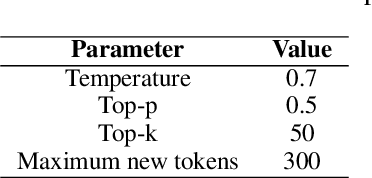

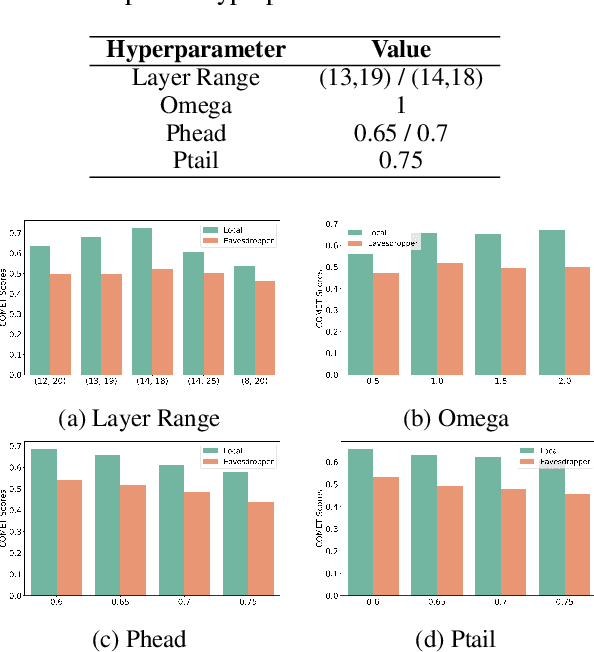
Abstract:This paper introduces a novel privacy-preservation framework named PFID for LLMs that addresses critical privacy concerns by localizing user data through model sharding and singular value decomposition. When users are interacting with LLM systems, their prompts could be subject to being exposed to eavesdroppers within or outside LLM system providers who are interested in collecting users' input. In this work, we proposed a framework to camouflage user input, so as to alleviate privacy issues. Our framework proposes to place model shards on the client and the public server, we sent compressed hidden states instead of prompts to and from servers. Clients have held back information that can re-privatized the hidden states so that overall system performance is comparable to traditional LLMs services. Our framework was designed to be communication efficient, computation can be delegated to the local client so that the server's computation burden can be lightened. We conduct extensive experiments on machine translation tasks to verify our framework's performance.
Can We Trust LLMs? Mitigate Overconfidence Bias in LLMs through Knowledge Transfer
May 27, 2024Abstract:The study explores mitigating overconfidence bias in LLMs to improve their reliability. We introduce a knowledge transfer (KT) method utilizing chain of thoughts, where "big" LLMs impart knowledge to "small" LLMs via detailed, sequential reasoning paths. This method uses advanced reasoning of larger models to fine-tune smaller models, enabling them to produce more accurate predictions with calibrated confidence. Experimental evaluation using multiple-choice questions and sentiment analysis across diverse datasets demonstrated the KT method's superiority over the vanilla and question-answer pair (QA) fine-tuning methods. The most significant improvement in three key metrics, where the KT method outperformed the vanilla and QA methods by an average of 55.3% and 43.1%, respectively. These findings underscore the KT method's potential in enhancing model trustworthiness and accuracy, offering precise outputs with well-matched confidence levels across various contexts.
PRCA: Fitting Black-Box Large Language Models for Retrieval Question Answering via Pluggable Reward-Driven Contextual Adapter
Oct 23, 2023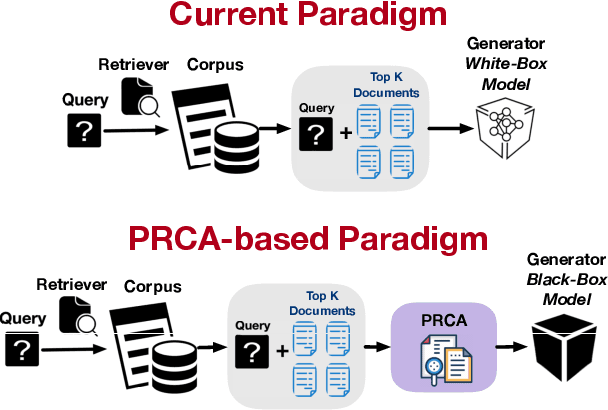
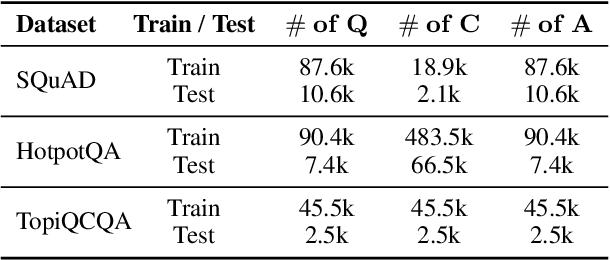
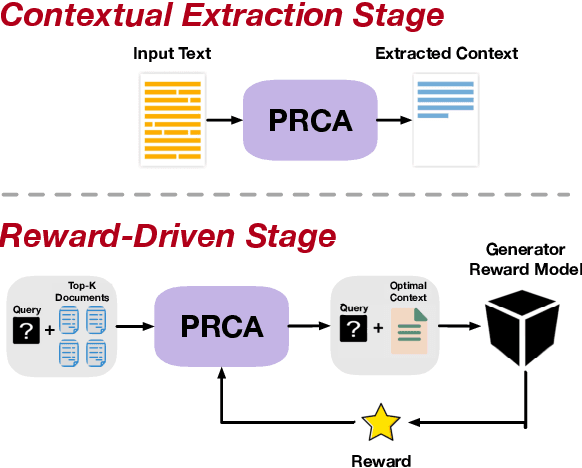
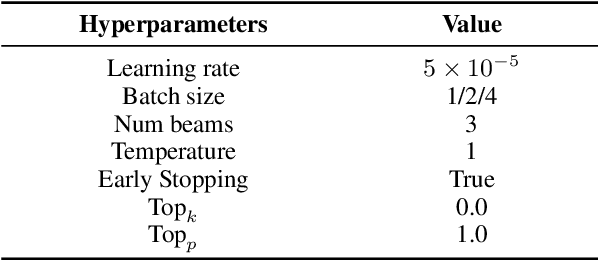
Abstract:The Retrieval Question Answering (ReQA) task employs the retrieval-augmented framework, composed of a retriever and generator. The generator formulates the answer based on the documents retrieved by the retriever. Incorporating Large Language Models (LLMs) as generators is beneficial due to their advanced QA capabilities, but they are typically too large to be fine-tuned with budget constraints while some of them are only accessible via APIs. To tackle this issue and further improve ReQA performance, we propose a trainable Pluggable Reward-Driven Contextual Adapter (PRCA), keeping the generator as a black box. Positioned between the retriever and generator in a Pluggable manner, PRCA refines the retrieved information by operating in a token-autoregressive strategy via maximizing rewards of the reinforcement learning phase. Our experiments validate PRCA's effectiveness in enhancing ReQA performance on three datasets by up to 20% improvement to fit black-box LLMs into existing frameworks, demonstrating its considerable potential in the LLMs era.
 Add to Chrome
Add to Chrome Add to Firefox
Add to Firefox Add to Edge
Add to Edge